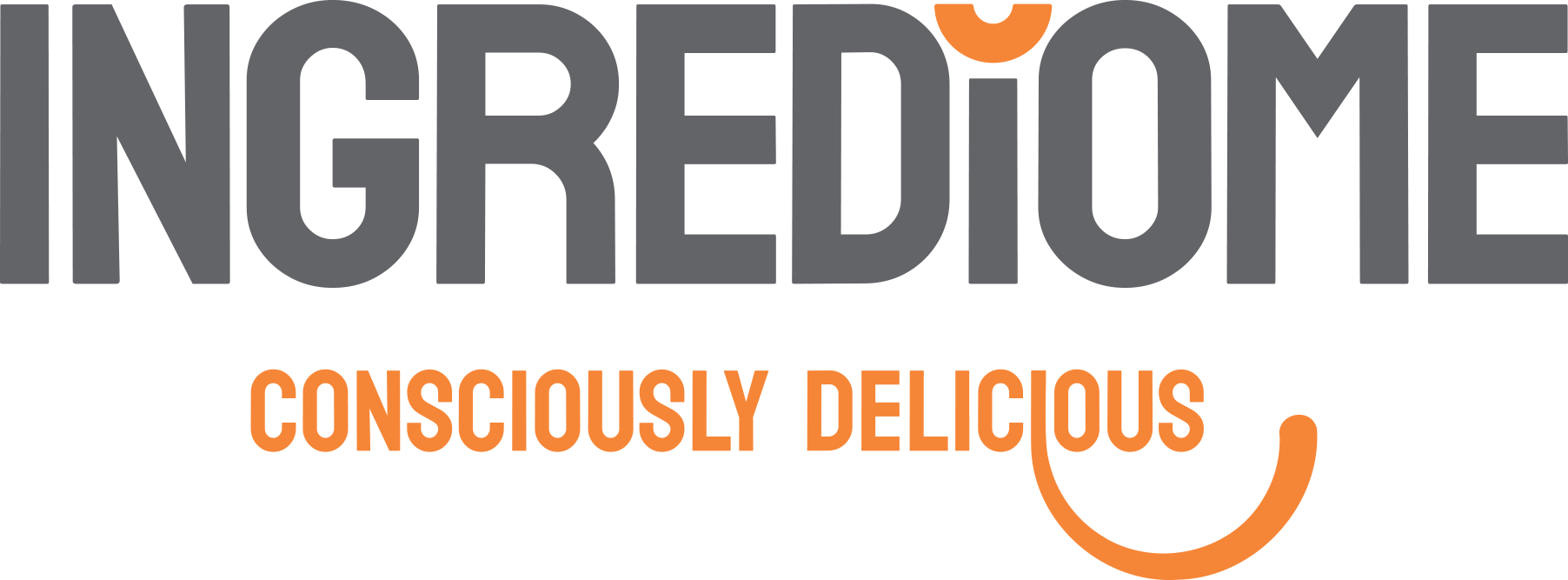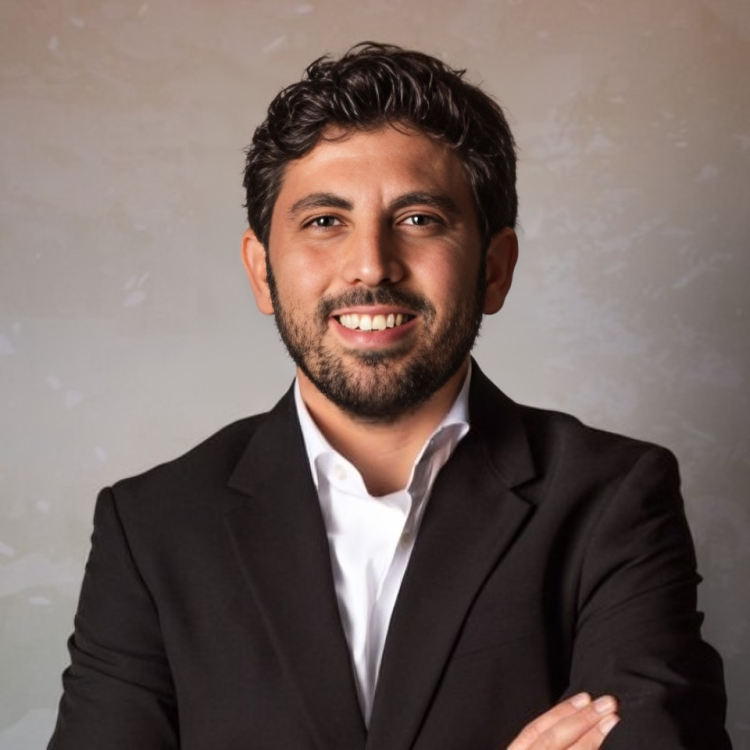Meet Aviel from Ingrediome
Q: Could you briefly introduce yourself and your background?
A: I’m Aviel Even. I come from a combined scientific and entrepreneurial background. I hold a Ph.D from Tel-Aviv University that was done in collaboration with Marie Curie Institut (Paris) and Liege University Hospital (Belgium), focusing on human genetic disease. In 2017, I decided to apply my knowledge in synthetic biology to revolutionize the way we make food.
Q: What led to the initial focus on food sector?
A: In 2018 I started working on the production od dairy proteins and fats in soybeans to recreate dairy. We developed genetically modified plants at the Weizmann Institue, which were later on commercialized. In 2021, just before starting Ingrediome we identified challenges in the meat sector that could not be met with either plant-based nor cultured meat, and decided to focus on reinventing meat using innovative approaches.
Applying to Indie Bio
Q: What prompted you to join Indie Bio, and what benefits did you expect to derive from being part of the accelerator?
A: We chose Indie Bio for two key reasons. First, we wanted to be part of the dynamic food tech space and leverage IndieBio’s success with previous companies. Joining Indie Bio provided an opportunity to expand our network beyond Israel and Europe, tapping into Silicon Valley. Second, we recognized the value Indie Bio could offer, particularly in learning from the experiences of other companies in San Francisco. We needed a partner willing to invest in a groundbreaking idea, and IndieBio’s innovative mindset aligned perfectly with our moonshot approach.
Q: In what ways did IndieBio support your unconventional approach, considering the uniqueness of your project?
A: IndieBio proved instrumental in supporting our unconventional approach. Po Bronson, intrigued by our idea, was enthusiastic about investing in a paradigm no other company had attempted. He saw the innovation in our approach as a valuable moonshot. IndieBio’s support and mindset aligned with our vision, making it a perfect match. This marked the beginning of our journey in the program.
Q: Could you describe the application process for Indie Bio and how you initially connected with the accelerator?
A: We had a warm intro to IndeiBio through a colleague, this connection led to several discussions with Po Bronson to understand Ingrediome’s concept and challenge us with insightful questions. Even if we hadn’t been accepted, the questions raised during these talks were instrumental in refining our idea.
Q: Can you detail the interview rounds you went through during the application process and how having a warm introduction impacted your experience?
A: The application process involved multiple interviews, including two with Po Bronson, the program director, and another with the entire team. While we had prepared an online application, it was not necessary as we engaged in direct conversation.
Q: How did the flexibility introduced by Indie Bio, especially during the COVID period, influence the application process and participation?
A: Post-COVID, Indie Bio adopted hybrid programs, accepting companies from around the world and the United States. We were among the early Israeli companies to join Indie Bio, and our colleague’s direct connection expedited the process. The flexibility introduced post-COVID allowed wider participation, enabling a more diverse set of companies to benefit from the accelerator.
Typical Day in the Accelerator and Funding Experience
Q: After being admitted, can you describe a typical day in the Indie Bio program and provide an overview of how the program unfolded?
A: Each day of the week involved a one-hour conversation, along with various sessions where we interacted with investors and had one-on-one sessions with the IndieBio team. Personal connections were fostered through official channels like WhatsApp or calls, enabling us to request and discuss necessary matters.
Twice during the program all the companies gathered at the SF branch for a week or two, engaging in more intensive programming and activities throughout the day. Besides the scheduled daily hours, the program allowed flexibility—what you made of it depended on your company’s needs. Whether focusing on technology, business development, or a combination, Indie Bio provides support, either directly or by connecting you with relevant individuals from their extensive network.
Q: Could you provide information about the funding you received upon admission to Indie Bio, including any additional funding opportunities during the program?
A: Upon admission to Indie Bio, we received $275,000 in funding as outlined on their website. Additionally, there’s an opportunity for an extra $250,000 during the program. As for the specifics of equity exchange for this funding, it’s subject to change, and it’s advisable to discuss directly with Indie Bio.
Reviewing the IndieBio
Q: What is the most valuable aspect of the Indie Bio program, and what sets it apart from other accelerators?
A: The most valuable aspect of IndieBio, in my view, is the network expansion and the sense of community that readily offers assistance. With hundreds of Indie Bio companies, the willingness to help is remarkable. Being part of this network, especially connecting with mature companies, provides immense value.
Q: In reflection, are there aspects where Indie Bio could improve or were lacking during your time in the program?
A: One drawback in remote programming is the lack of obvious structure outside of the structured program. Seeking opportunities requires effort, especially when operating from a considerable distance. It took some time for us to figure out this less apparent structure. For those not in San Francisco, the challenge lies in understanding how to navigate the opportunities presented remotely.
Q: Do you recommend the Indie Bio accelerator to those not in San Francisco, and what value can they expect, especially if interested in the U.S. market?
A: Yes, I highly recommend it, especially if interested in the U.S. market, connecting with U.S. investors, and establishing operations in the USA. IndieBio offers significant value, not only in terms of the program’s great minds but also in building networks. However, for those seeking more localized connections, a local accelerator might make more sense.
Q: How has Indie Bio impacted your startup’s growth trajectory, and what changes have you noticed in terms of speed and maturation?
A: IndieBio has accelerated our growth significantly. The program’s pace is remarkably swift, pushing us to achieve in six months what would typically take a year and a half. The competitive environment, encouragement, and exposure to rapid movers create an atmosphere that propels startups forward, fostering both business and technological maturity.
Q: Can you provide quantifiable metrics or milestones post-accelerator, and how do you attribute this success to the knowledge gained during the program?
A: In our early-stage R&D, quantifying success is challenging, but the accelerator has been instrumental in various aspects. Building a board of directors, gaining credibility from investors, connecting with technological institutes, and establishing professional networks were critical achievements. The program guided us in focusing on R&D and forming connections with significant commercial players, setting the groundwork for substantial progress.
Q: Looking ahead, what are the next milestones for your startup, and how do you believe the Indie Bio accelerator has equipped you for these challenges?
A: Our next milestones involve completing the basic R&D phase and transitioning to scaling up, enabling expanded business development activities. The accelerator provided valuable advice on R&D focus and facilitated connections with key commercial players. We are now well-prepared to navigate these milestones, clearly understanding our direction and significant companies to collaborate with.
Advice for Applicants
Q: What advice would you offer to individuals considering applying to Indie Bio or any other accelerator?
A: I advise building a strong team and focusing on something genuinely innovative, ensuring your innovation sets you apart from companies already in the accelerator. Look at previous companies and aim to bring a fresh perspective. If you’re unsure which accelerator to choose, analyze existing companies’ portfolios. Differentiate yourself and communicate this uniqueness during the application process and interviews.


